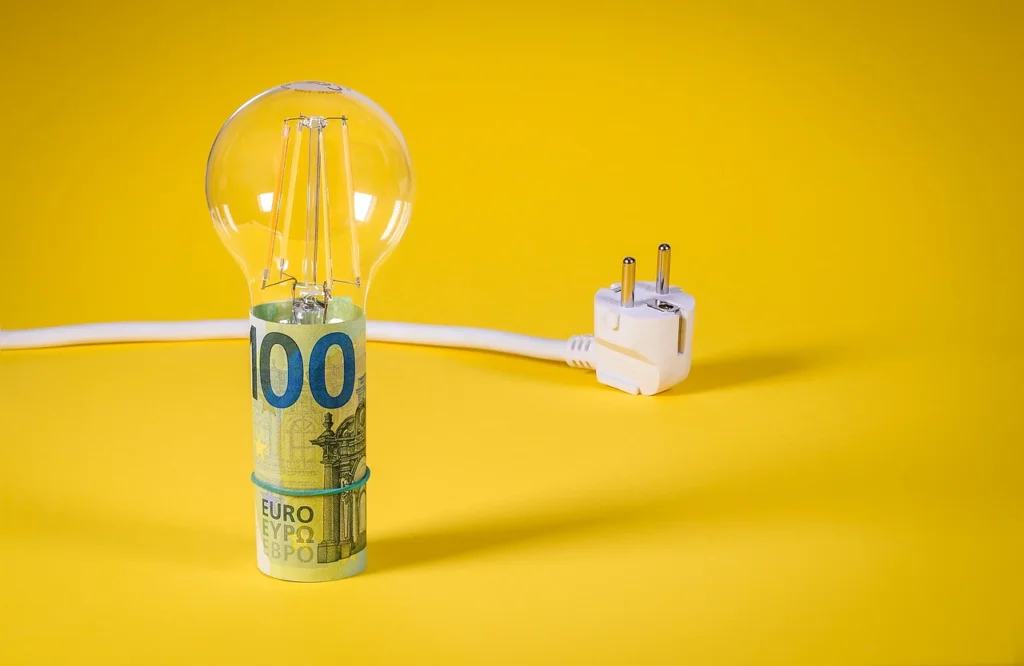Does your energy bill suck all your money away?
Thousands of households pay hundreds of pounds too much on heating costs each year. Why? Because they forget to bleed their radiators.
Shocking right?! The thing that can save you money takes literally five minutes to do.
Ok, enough chatting…
Most people don’t do it because when their home is cold they just turn the heating up instead of bleeding the radiators.
The thing is when air is trapped in your radiators it costs you money.
Here’s what you’ll find:
- What Is Radiator Bleeding?
- Why Does Trapped Air Cost You Money?
- Signs Your Radiators Need Bleeding
- How To Bleed Radiators
- When Should You Bleed Your Radiators?
What Is Radiator Bleeding?
Radiator bleeding is the term used to describe releasing trapped air from your heating system.
Air becomes trapped inside your radiators causing air pockets which prevent hot water from circulating properly.
Your boiler has to work harder and longer to heat your home which in turn means higher energy bills.
If your radiator is covered in dust you can easily clean your radiator .
Think of it like having a straw with holes in it.
The liquid doesn’t flow through easily and you have to work harder to get what you need.
That’s not so good is it?
Bleeding your radiators gets rid of these air pockets and allows for a better water flow throughout your heating system.
Why Does Trapped Air Cost You Money?
When your radiator contains air your heating system becomes way less efficient.
Your boiler will have to work much harder to compensate for the less heat your radiators will produce.
Instead of the system heating your home up quickly and efficiently, it will have to run much longer cycles in order to hit the temperature you are trying to reach.
Did you know that research has shown that properly bleeding your radiators can actually save over £90 a year in energy bills? For five minutes work, that’s a great return.
But it’s not just the heating bills that cost you.
Your boiler also has to work harder and therefore will have more wear and tear. This leads to breakdowns, repairs, and earlier replacement.
If you are interested in hiring a professional to do this task, reading up on bleeding radiator cost will help you decide whether you should attempt it yourself or call the experts.
Signs Your Radiators Need Bleeding
You can take precautions so you don’t end up paying an extortionate heating bill.
Look out for the signs that show that your radiator needs bleeding:
- Cold Spots At The Top Of Your Radiator
- Gurgling Or Banging Noises
- Slow Heating
- Uneven Temperatures
- High Energy Bills
The longer you leave it, the more you will end up paying.
How To Bleed Radiators: The Simple Process That Saves You Hundreds
Now to the bit you have been waiting for, how to bleed your radiators.
The good news is it’s so easy it’s ridiculous. You don’t need to be a genius or own special tools to do it. In fact, most people can do the whole process in less than one hour.
You will need:
- A radiator key, or an ordinary flat-head screwdriver
- An old towel or cloth
- A small bowl or container
- About 10 minutes per radiator
Step by step guide:
Switch off your heating system and give the radiators time to cool down. You don’t want to be working with piping hot radiators.
Locate the bleed valve on each radiator. It should be at the top corner and looks like a small square with a slot in the middle.
Place your cloth and container underneath the valve so it can catch the water that will come out.
Insert your radiator key and gently turn it anti-clockwise.
You will hear a hissing sound as the trapped air comes out.
Leave the valve open until you no longer hear the hissing sound and water comes out instead of air.
Once the water is flowing, quickly close the valve by turning it clockwise.
Repeat the same process for each radiator in your home, start from the ground floor and work your way up.
Check your boiler pressure after bleeding all of your radiators, as you may need to top it up.
When Should You Bleed Your Radiators?
Timing is everything.
The best time to bleed your radiators is just before the heating season. This would be around September or the start of October for most people.
You want your system working as efficiently as possible before you need it most.
But don’t wait for that perfect moment…
If you start to hear strange noises or feel cold spots in the middle of winter, go ahead and bleed those radiators.
You are literally wasting money by leaving it, every single day that you wait.
You should also bleed your radiators after any heating system work, moving into a new property, after power cuts that have affected your boiler, or once per year as part of your maintenance routine.
Bleeding Radiators: Professional Vs DIY
Most people find bleeding radiators is perfectly simple to do themselves.
But there are times when calling in the professionals makes sense.
Professional help may be worth the investment if you have a number of radiators, a complex system, or you don’t feel confident doing it yourself.
You should also consider calling in professional help if you:
- Have a large property with many radiators
- Need the system rebalanced after bleeding
- You don’t feel comfortable with the idea of working with your heating system
- You find other issues while bleeding your radiators
The money you will save on energy bills usually means that professional radiator maintenance pays for itself in no time.
Additional Energy Saving Tips
If you are serious about keeping your home heated properly without it costing an arm and a leg, here are some extra things you can do to help you save even more money.
Balance your radiator system
Adjusting your individual valves can help with getting an even water flow.
Use a thermostatic radiator valve
These automatically regulate temperatures to ensure rooms don’t get too hot.
Keep your radiators clean
Dust buildup reduces heat output, so giving them a wipe is important.
Use radiator reflectors
They fit behind your radiators and help stop heat loss through external walls.
Get your boiler serviced annually
Ensures the system works at maximum efficiency and for longer.
Combined with regular radiator bleeding, these tips can massively reduce your heating bills.
Don’t Let Money Go Down The Drain
Bleeding your radiators is such a small thing. But it is one of the most cost-effective things you can do.
Research by industry experts show that households can save up to £1,000 a year by learning how to maintain their own radiators properly.
Think about all the things you could be doing with an extra £1,000. Holidays, home improvements, or just some breathing room on your finances.
The choice is yours. Spend 30 minutes bleeding your radiators, or hundreds of pounds more on energy bills.
Final Thoughts
Bleeding your radiators is the easiest way to boost your heating efficiency and reduce your energy bills. With just the cost of a radiator key and minutes of your time, you can save hundreds of pounds every year.
Don’t let that trapped air sap the life out of your bank account. Act before the next heating season and have a properly working heating system.
Your wallet will thank you for it.



